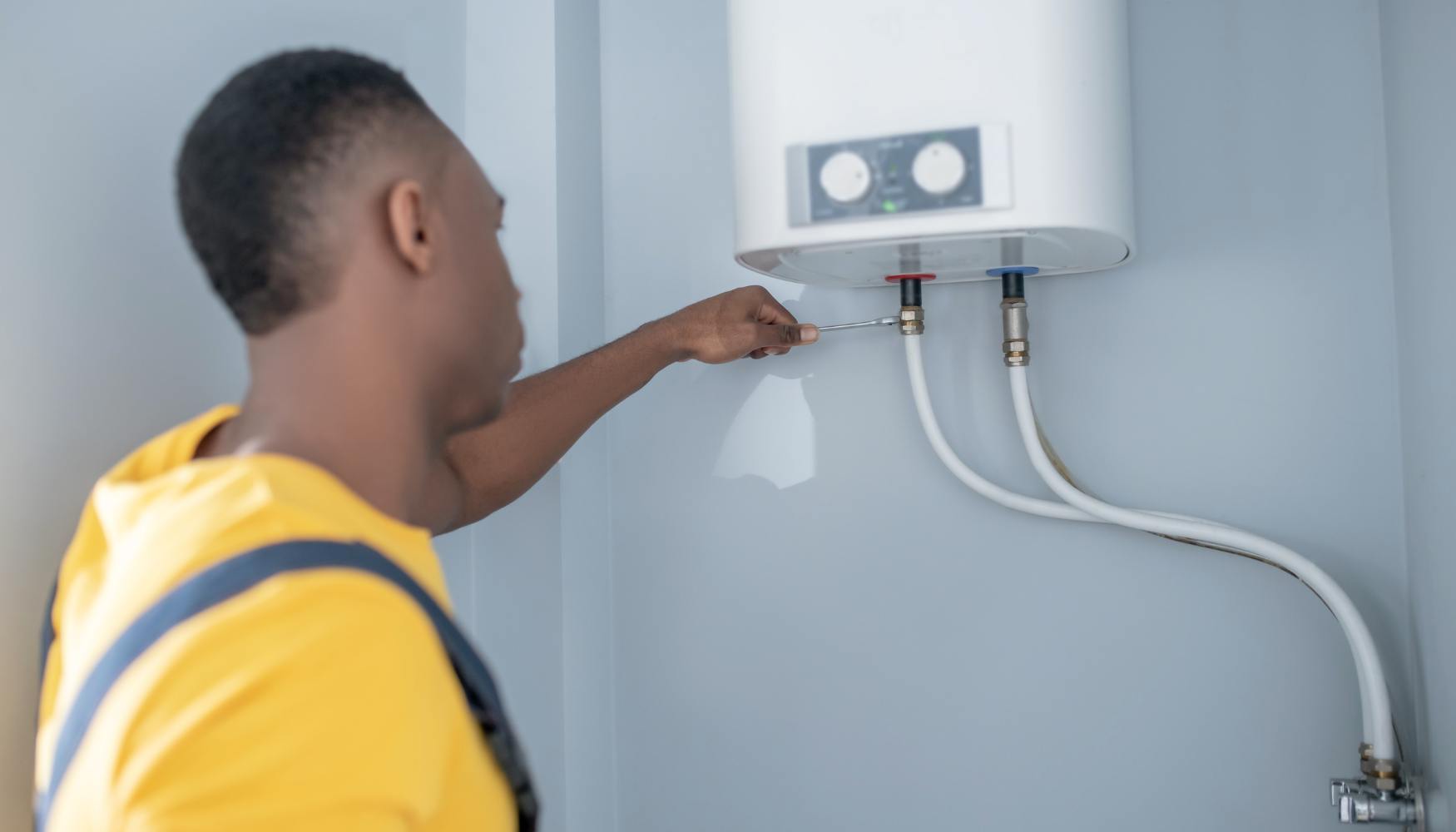Just how do you actually feel when it comes to Pros and Cons of Tankless Water Heater?

In a globe where comfort and performance preponderate, it's not a surprise that homeowners are regularly looking for smarter methods to handle their home's power usage and convenience. One technology that has progressively gotten appeal is the tankless hot water heater. But just what makes these systems stick out from the traditional tank-based designs a lot of us grew up with? Let's dive in and check out the advantages of tankless hot water heater, aiding you determine if it's time to make the switch in your house.
Intro
Image this: you enter the shower after a long day, anticipating a comforting cascade of warm water, only to be welcomed by icy beads because the last individual used everything up. Audio familiar? Standard water heaters save a fixed amount of warm water, suggesting you're at the grace of that storage tank's supply. Tankless systems, on the other hand, warmth water as needed. No more running out mid-shower, say goodbye to wrestling with timetables simply to ensure warm water is available.
Comprehending Tankless Hot Water Heater
What Are Tankless Water Heaters?
Tankless water heaters, sometimes known as on-demand or instantaneous water heaters, supply hot water only as it's needed. Instead of saving gallons of pre-heated water, these units kick right into action the moment you switch on the tap. Water passes through a warmth exchanger, warming up in real-time, suggesting you obtain a nonstop circulation of warm water without the demand for a big tank resting idly by.
How Do They Differ from Conventional Solutions?
Standard heating units hold a tank of warm water, utilizing energy to keep that tank at a consistent temperature level. Tankless devices remove the standing supply, cutting down on thrown away power and the large footprint of a huge cylinder. Essentially, you're updating from a "accumulation" way of thinking to a "made-to-order" approach.
Common Sorts Of Tankless Devices
Tankless hot water heater usually can be found in two ranges: gas and electric. Gas models have a tendency to provide greater flow prices, suitable for larger families, while electrical models often serve smaller homes and are typically simpler to set up. In addition, some systems are made for point-of-use (offering one component) while others can take care of the whole home's hot water needs.
Trick Advantages of Tankless Hot Water Heater
Energy Effectiveness and Price Savings
Say goodbye to warming a titan tank's well worth of water and maintaining it warm all the time. Tankless heating units reduce standby energy losses, which can reduce energy costs. While the preliminary expense might be higher, the lasting financial savings frequently justify the investment.
3. Space-Saving Layout
If your home is short on storage space, getting rid of the large storage tank frees up beneficial area. Tankless units are small and can typically be mounted on wall surfaces, hidden in edges, or set up in limited utility storage rooms without having all to oneself the entire area.
4. Longer Life expectancy
A well-maintained tankless hot water heater can outlive its tank-based cousin. Typical tanks could last 10-15 years, while tankless models can keep downing along for two decades or more, making them a strong investment in time.
1. Limitless Hot Water Supply
Ever had to set up showers so everyone gets their fair share of warm water? With tankless, that comes to be a distant memory. As long as the heating system's flow ability isn't gone beyond, you can take back-to-back showers without becoming a popsicle.
5. Improved Water High Quality
Saving water in a tank can often result in sediment accumulation or a somewhat "off" preference. With tankless systems, fresh water is warmed right away, reducing the possibilities of sediment buildup and potentially providing cleaner-tasting water.
Considerations Before Changing
Though the advantages are engaging, it's a good idea to take into consideration a couple of factors prior to fully dedicating.
Evaluating Your Home's Water Usage Patterns
If your house concurrently uses several components with high warm water need, see to it the device's flow rate satisfies your requirements. Recognizing your usage patterns assists you select the ideal size and type of tankless heating system.
Maintenance and Care Tips
Tankless systems are reasonably low maintenance, however they aren't set-it-and-forget-it home appliances.
Routine Cleaning and Descaling
Tough water minerals can build up in the heat exchanger, affecting effectiveness. Normal descaling (commonly advised annually) keeps the device running at peak performance.
Yearly Specialist Examinations
A yearly checkup from a specialist makes certain small problems are caught early. They'll assess the unit's efficiency, try to find leaks, and help keep optimum effectiveness.
Preliminary Financial Investment Prices
Tankless heaters normally feature a greater ahead of time cost. In between the device itself and prospective installment modifications, the initial price could provide you sticker label shock. Yet bear in mind to see it as a long-lasting financial investment.
Installment Needs
Depending upon your home's framework, you could require added electrical capacity or gas line upgrades. Guarantee you comprehend the setup needs and consult with a professional to prevent surprises.
Making Certain Proper Air Flow
For gas models, appropriate ventilation is important to safely expel exhaust gases. Make certain airing vent systems are tidy and appropriately set up to prevent any possible security dangers.
Contrasting Different Brands and Versions
Not all tankless water heaters are developed equivalent.
Investigating Dependable Manufacturers
Look for respectable brand names with a background of generating top quality units. A dependable supplier usually gives far better client assistance and longer service warranties.
Installment: Do It Yourself or Expert?
While some home owners delight in taking on jobs themselves, tankless installation could not be the most effective time to burst out the tool kit.
Advantages and disadvantages of DIY Installation
A DIY set up can conserve cash, but it includes threats. Incorrect setup can bring about inefficiency or security worries. If you come in handy and have experience, it could be feasible-- but proceed with caution.
Reading Reviews and User Responses
Customer testimonials and responses from next-door neighbors or close friends that have gone tankless can provide valuable understandings. Occasionally, real-life experiences can be extra informing than advertising pamphlets.
When to Call a Professional Plumber
For a lot of, calling a pro makes certain whatever's done properly. A professional plumbing technician understands regional codes, sizing requirements, and venting parameters, decreasing the risk of problems.
Making best use of Effectiveness
You have actually invested in a tankless system-- now maximize its efficiency.
Ideal Temperature Settings
Many people set their units between 120-140 F. Changing the temperature level can boost convenience and savings. Experiment to locate a pleasant place that does not throw away power.
Coupling With Low-Flow Fixtures
Intend to extend your unit's capabilities? Think about mounting low-flow showerheads and taps. They lower water use, enabling your tankless system to supply a constant stream of hot water without straining.
Environmental Impact
Tankless water heaters line up with greener living objectives.
Decreased Carbon Footprint
By using much less power and just heating water as required, tankless systems can decrease your home's carbon footprint, lowering your ecological influence.
Saving Natural Resources
Less energy consumption and much less wasted warm water equate right into fewer natural deposits being utilized, an environmental win-win.
Who Benefits The Majority Of from Tankless Heating units?
The elegance of tankless heaters is that they can fit a range of houses.
Large Families vs. Single Passengers
Huge family members could love the unlimited hot water supply, while single occupants appreciate the power savings from not heating up an entire tank for just someone's early morning shower.
Home Owners with Minimal Room
If your home is short on square video footage, losing the large storage tank frees up area for other essentials-- or possibly just much more elbow room.
Eco-Conscious Consumers
Going tankless aligns with eco-friendly worths, ensuring you're not squandering power or sources.
Future Trends in Tankless Water Heaters
The globe of home devices is ever-evolving, and tankless hot water heater are no exception.
Advancements in Modern technology
R&D is regularly boosting heat exchangers, making systems extra efficient and resilient. Future versions could be even quieter, extra compact, and better fit for differing environments.
Smart Home Assimilation
Imagine changing your hot water heater's temperature level by means of an application or getting upkeep informs on your phone. As wise home tech developments, we'll see even more connectivity and ease.
Verdict
Picking a tankless hot water heater is greater than just upgrading your home's warm water system; it's buying long-lasting comfort, energy performance, and a greener way of living. By considering your family's water use, being mindful of setup needs, and devoting to regular upkeep, you can delight in a steady stream of hot water without the baggage of a large storage tank. As modern technology advances, you can look forward to also smarter, a lot more efficient tankless options that not just make your life simpler yet also benefit the world.
Why You Should Consider a Tankless Water Heater for Your Home
Energy Efficiency and Cost Savings
Tankless water heaters, also known as on-demand water heaters, heat water only when needed. This means they don't waste energy keeping a tank of water hot constantly. This efficiency translates into substantial cost savings on your monthly energy bills.
Endless Hot Water Supply
One of the significant advantages of tankless water heaters is their ability to provide a continuous supply of hot water. Traditional tank water heaters have a limited capacity and can run out of hot water, especially during peak usage times. In contrast, tankless water heaters can provide an endless stream of hot water, making them ideal for larger families or homes with high water usage.
Space-Saving Design
Tankless water heaters are compact and take up significantly less space compared to traditional tank heaters. They can be installed on walls, under cabinets, or even outside, freeing up valuable space in your home. This makes tankless water heaters a great option for smaller homes or properties with limited space for a traditional water heater.
Longer Lifespan and Lower Maintenance
Tankless water heaters typically have a longer lifespan compared to traditional tank heaters. They can last up to 20 years or more with proper maintenance. Additionally, tankless systems are designed with replaceable parts, which can extend their lifespan further and reduce long-term maintenance costs.
Environmentally Friendly
Reducing energy consumption not only saves you money but also benefits the environment. Tankless water heaters contribute to a smaller carbon footprint by using less energy to heat water. Their energy efficiency and ability to minimize standby heat loss make them an eco-friendly choice for environmentally conscious homeowners.
Customized Temperature Control
Tankless water heaters offer precise temperature control, allowing you to set the desired temperature to meet your specific needs. This level of customization ensures you always have water at the perfect temperature for your comfort and usage requirements.
https://beantownservices.com/blog/consider-tankless-water-heater-for-your-home

Do you appreciate reading about ? Write a comment down the page. We'd be pleased to know your thoughts about this piece. We hope to see you back again in the near future. Are you aware of another person who is fascinated by the topic? Why not promote it. I praise you for being here. Don't hesitate to check up our blog back soon.
More Details